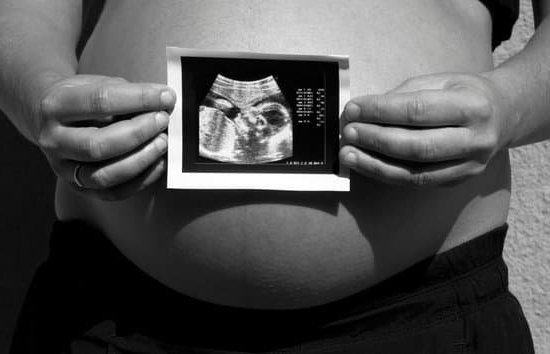Are you wondering, “why is my period late but negative pregnancy test“? Late periods can be a cause for concern, especially when a pregnancy test comes back negative. In this article, we will delve into the intricacies of the menstrual cycle and explore the various reasons why your period might be delayed even if you’re not pregnant.
The menstrual cycle is a complex process involving hormonal fluctuations that prepare the body for potential pregnancy each month. Understanding how the menstrual cycle works is crucial in deciphering why your period may be late despite receiving a negative pregnancy test result. While a missed period can often signal pregnancy, there are other factors at play that could contribute to its delay.
One common reason for a late period with a negative pregnancy test is the occurrence of false negatives. Pregnancy tests rely on detecting the hormone human chorionic gonadotropin (hCG) in urine, which may not be present in detectable amounts early on after conception. This can lead to inaccurate results, causing confusion for individuals experiencing delayed periods without a confirmed pregnancy.
How Pregnancy Tests Work
Pregnancy tests work by detecting the presence of human chorionic gonadotropin (hCG) in a woman’s urine or blood. This hormone is produced by the cells that will eventually form the placenta after a fertilized egg attaches to the uterine lining. However, there are instances when a woman may experience a late period but still receive a negative pregnancy test result. This phenomenon can be attributed to several factors that affect the accuracy of pregnancy tests.
One reason for a negative pregnancy test despite a late period is that hCG levels may not be high enough to be detected by the test yet. It usually takes about 7-12 days after conception for hCG levels to be present at high enough concentrations for detection, which could lead to false negatives in early testing.
Additionally, using an expired or faulty pregnancy test kit, not following instructions correctly, or testing too early in the day when urine is less concentrated can all contribute to inaccurate results.
Moreover, certain medications or medical conditions can also interfere with hCG production or detection, leading to false negative results on pregnancy tests. Conditions such as polycystic ovary syndrome (PCOS), thyroid disorders, and ovarian cysts can disrupt normal hormone levels and menstrual cycles. Therefore, if you are experiencing a late period but continue to receive negative pregnancy test results, it is important to consider consulting with a healthcare provider to rule out any underlying issues that may be causing the delay.
| Factors Affecting Pregnancy Test Accuracy | Description |
|---|---|
| Low hCG Levels | hCG may not be detectable early on |
| Faulty Test Kits | Expired kits or incorrect usage can lead to false negatives |
| Medical Conditions | PCOS, thyroid issues, etc. can disrupt hormone levels |
Common Reasons for a Late Period Other Than Pregnancy
When experiencing a late period, it is natural to be concerned about the possibility of being pregnant, especially when a pregnancy test comes back negative. However, there are various other factors that can contribute to a delayed menstrual cycle. Understanding these common reasons can help alleviate some of the stress and uncertainty surrounding the situation.
Stress and Its Impact on Menstrual Cycle
One of the most common reasons for a late period is stress. High levels of stress can disrupt the hormonal balance in the body, leading to irregularities in the menstrual cycle. When the body is under stress, it can affect the functioning of the hypothalamus, which in turn affects hormone production and ultimately the timing of your period.
This disruption can result in a delayed period, even if you are not pregnant. Finding ways to manage stress through relaxation techniques, exercise, and self-care practices may help regulate your menstrual cycle.
Hormonal Imbalances: An Explanation for Delayed Periods
Hormonal imbalances can also be a significant factor in causing late periods. Fluctuations in hormone levels, such as estrogen and progesterone, can impact the regularity of your menstrual cycle. Conditions like polycystic ovary syndrome (PCOS) or thyroid disorders can disrupt hormonal balance, leading to irregular periods. If you suspect that hormonal imbalances may be causing your late period, it is essential to consult with a healthcare provider for proper evaluation and treatment.
Diet and Exercise: How They Affect Menstrual Health
An unhealthy diet or extreme changes in weight can influence your menstrual cycle. Poor nutrition or excessive exercise can put stress on your body and potentially lead to late periods or missed periods altogether. It is crucial to maintain a balanced diet rich in nutrients essential for reproductive health and ensure that you are not overexerting yourself with intense workouts. Making healthy lifestyle choices can contribute to regular menstrual cycles and overall well-being.
By considering these common reasons for a late period other than pregnancy like stress, hormonal imbalances, diet, and exercise habits when faced with this situation along with
Stress and Its Impact on Menstrual Cycle
Stress is a common factor that can significantly impact a woman’s menstrual cycle, leading to a late period despite a negative pregnancy test. The body’s response to stress can disrupt the delicate balance of hormones responsible for regulating the menstrual cycle. When cortisol levels rise due to stress, it can interfere with the production of reproductive hormones like estrogen and progesterone, causing irregularities in the timing of ovulation and menstruation.
Additionally, high levels of stress can also affect the functioning of the hypothalamus, pituitary gland, and ovaries, which play crucial roles in regulating the menstrual cycle. This disruption can result in delayed or missed periods, even when pregnancy is not a factor. It is essential for women to recognize the connection between their mental health and reproductive health, as managing stress through relaxation techniques, mindfulness practices, and seeking support when needed can help restore regularity to their menstrual cycle.
Furthermore, chronic stress can also lead to other physical symptoms that may contribute to a late period, such as disrupted sleep patterns, changes in appetite, and fatigue. Addressing stress levels and finding healthy coping mechanisms are key not only for overall well-being but also for maintaining a healthy menstrual cycle.
If stress is suspected as the primary cause of a late period with negative pregnancy test results, it is important to prioritize self-care practices and seek professional help if needed to better manage stress levels and support reproductive health.
Hormonal Imbalances
Understanding Hormonal Imbalances
When wondering “why is my period late but negative pregnancy test,” one potential reason could be hormonal imbalances. Hormones play a crucial role in regulating the menstrual cycle, and any disruptions in hormone levels can lead to irregularities in the timing of periods.
One common hormonal imbalance that can cause a delay in menstruation is polycystic ovary syndrome (PCOS). PCOS is a condition characterized by elevated levels of androgens (male hormones) in women, which can interfere with normal ovulation and menstruation.
The Role of Stress on Hormones
Stress can also impact hormone levels and contribute to delayed periods. When the body is under stress, it releases cortisol, also known as the stress hormone. High levels of cortisol can disrupt the balance of other hormones involved in the menstrual cycle, such as estrogen and progesterone. This disruption can result in changes to the length and regularity of your menstrual cycles, causing your period to be late even if you are not pregnant.
Other Hormonal Factors to Consider
In addition to PCOS and stress, there are other hormonal factors that could be causing your late period. Thyroid disorders, such as hypothyroidism or hyperthyroidism, can affect hormone production and lead to menstrual irregularities.
Certain medications, like hormonal birth control or corticosteroids, can also influence hormone levels and impact the timing of your periods. If you are experiencing persistent delays in your menstrual cycle despite negative pregnancy tests, it may be worth discussing these potential hormonal imbalances with your healthcare provider for further evaluation and appropriate management.
Diet and Exercise
When it comes to understanding why your period may be late despite a negative pregnancy test, it’s important to consider the role that diet and exercise play in menstrual health. The food we eat and our level of physical activity can have a significant impact on our hormonal balance, which in turn affects our menstrual cycle. A poor diet or excessive exercise can disrupt this delicate balance, leading to irregular periods or even missed periods.
A diet lacking in essential nutrients can result in hormonal imbalances that interfere with the normal functioning of your reproductive system. For example, inadequate intake of iron or vitamin B12 can lead to anemia, which may cause your period to be delayed. On the other hand, excessive consumption of processed foods high in sugar and unhealthy fats can contribute to inflammation and insulin resistance, further exacerbating menstrual irregularities.
Similarly, engaging in intense or excessive exercise routines without giving your body enough time to rest and recover can also affect your menstrual cycle. This is known as hypothalamic amenorrhea, a condition where menstruation stops due to excessive physical stress.
The body prioritizes vital functions over reproduction when it perceives a state of stress or energy deficiency, leading to delayed or absent periods. So, it’s crucial to maintain a balanced diet and moderate exercise routine to support optimal menstrual health.
| Impact Factors | Menstrual Health |
|---|---|
| Poor Diet | Hormonal Imbalance |
| Excessive Exercise | Hypothalamic Amenorrhea |
Medical Conditions That Can Cause Late Periods
There are a variety of medical conditions that can result in a late period, even if a pregnancy test comes back negative. It is essential to consider these possibilities when experiencing irregularities in your menstrual cycle. Here are some common medical conditions that could be causing your late period:
- Polycystic Ovary Syndrome (PCOS): PCOS is a hormonal disorder that can lead to irregular periods, excessive hair growth, acne, and weight gain. Women with PCOS may experience missed or delayed periods due to imbalances in their hormone levels.
- Thyroid Disorders: Thyroid issues, such as hypothyroidism or hyperthyroidism, can disrupt the menstrual cycle. An underactive or overactive thyroid gland can affect the production of hormones needed for ovulation and menstruation.
- Uterine Fibroids: Fibroids are non-cancerous growths in the uterus that can cause heavy periods, pelvic pain, and in some cases, delayed menstruation. These growths can interfere with the normal functioning of the uterus and impact the menstrual cycle.
It is important to consult a healthcare provider if you suspect that a medical condition may be the reason behind your late period. A thorough evaluation and proper diagnosis can help determine the appropriate treatment plan to address any underlying health issues. Ignoring potential medical conditions could lead to further complications down the line.
When to Consult a Healthcare Provider for a Late Period
It can be incredibly frustrating and confusing to experience a late period while consistently receiving negative results on pregnancy tests. So, why is my period late but negative pregnancy test? While the most common answer may seem obvious, there are actually several other factors that could be contributing to this situation. It’s important to understand when it might be time to seek advice from a healthcare provider regarding your late period.
Here are a few reasons why your period might be late but you keep getting negative pregnancy test results:
- Ovulation Timing: Sometimes, ovulation can occur later than usual, leading to a delayed period even if conception did not take place.
- Medications: Certain medications can affect your menstrual cycle and potentially cause delays in your period.
- Hormonal Imbalance: Fluctuations in hormones, such as thyroid imbalances or polycystic ovary syndrome (PCOS), can impact the regularity of your menstrual cycle.
If you find yourself in a situation where your period is significantly delayed with repeated negative pregnancy tests, it may be time to consult with a healthcare provider. They will be able to perform further testing, discuss potential underlying causes, and provide guidance on next steps. Remember, taking care of your reproductive health is crucial for overall well-being and peace of mind.
Conclusion
In conclusion, experiencing a late period but receiving a negative pregnancy test can be a source of confusion and concern for many individuals. However, it is essential to understand that there are various reasons why this may occur beyond just pregnancy. From stress and hormonal imbalances to lifestyle factors like diet and exercise, there are numerous factors that can impact the regularity of your menstrual cycle.
If you find yourself in this situation, it is crucial not to panic but rather take proactive steps towards understanding your body better. Keeping track of your menstrual cycle, practicing healthy habits, and seeking medical advice when necessary are all important in taking charge of your reproductive health. By being more aware of the potential causes of a late period and educating yourself on how to address them, you can empower yourself to make informed decisions about your well-being.
Remember that every individual’s body is unique, and what works for one person may not necessarily apply to another. Listening to your body, paying attention to any changes or irregularities in your menstrual cycle, and seeking professional guidance when needed are all key components of maintaining good reproductive health. Ultimately, by staying informed and proactive about your health, you can navigate situations like a late period with confidence and peace of mind.
Frequently Asked Questions
Can I Still Be Pregnant if the Test Is Negative and No Period?
It is possible to still be pregnant even if a test shows negative results and no period. This can happen if the test was taken too early or if there are hormonal imbalances affecting the results. It’s best to consult with a healthcare provider for further evaluation.
How Late Can a Period Be Without Being Pregnant?
A period can be late without being pregnant due to various factors such as stress, changes in weight, illness, or hormonal imbalances. Typically, a period is considered late if it has not arrived within 5-7 days of its expected date. If this occurs consistently, it may be a good idea to seek medical advice.
Why Is My Period Late but Not Testing Positive for Pregnancy?
A late period not testing positive for pregnancy could be attributed to reasons like anovulation (lack of ovulation), PCOS (Polycystic Ovary Syndrome), thyroid disorders, or excessive exercise. These conditions can affect hormone levels and menstrual cycles. Consulting with a healthcare provider can help determine the underlying cause.

Welcome to my fertility blog. This is a space where I will be sharing my experiences as I navigate through the world of fertility treatments, as well as provide information and resources about fertility and pregnancy.





